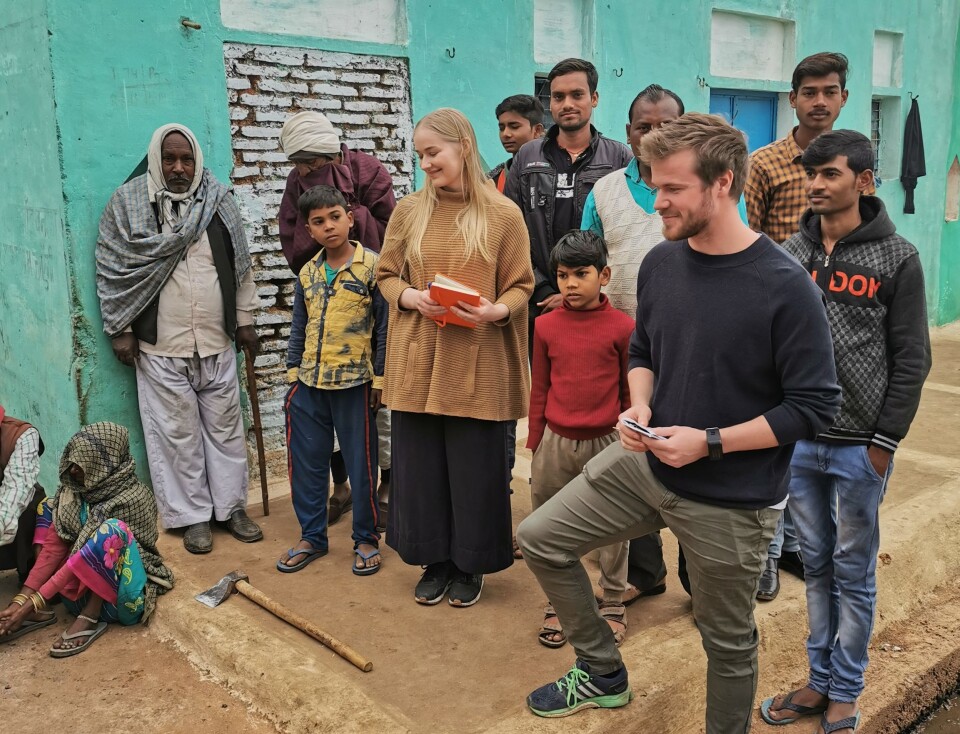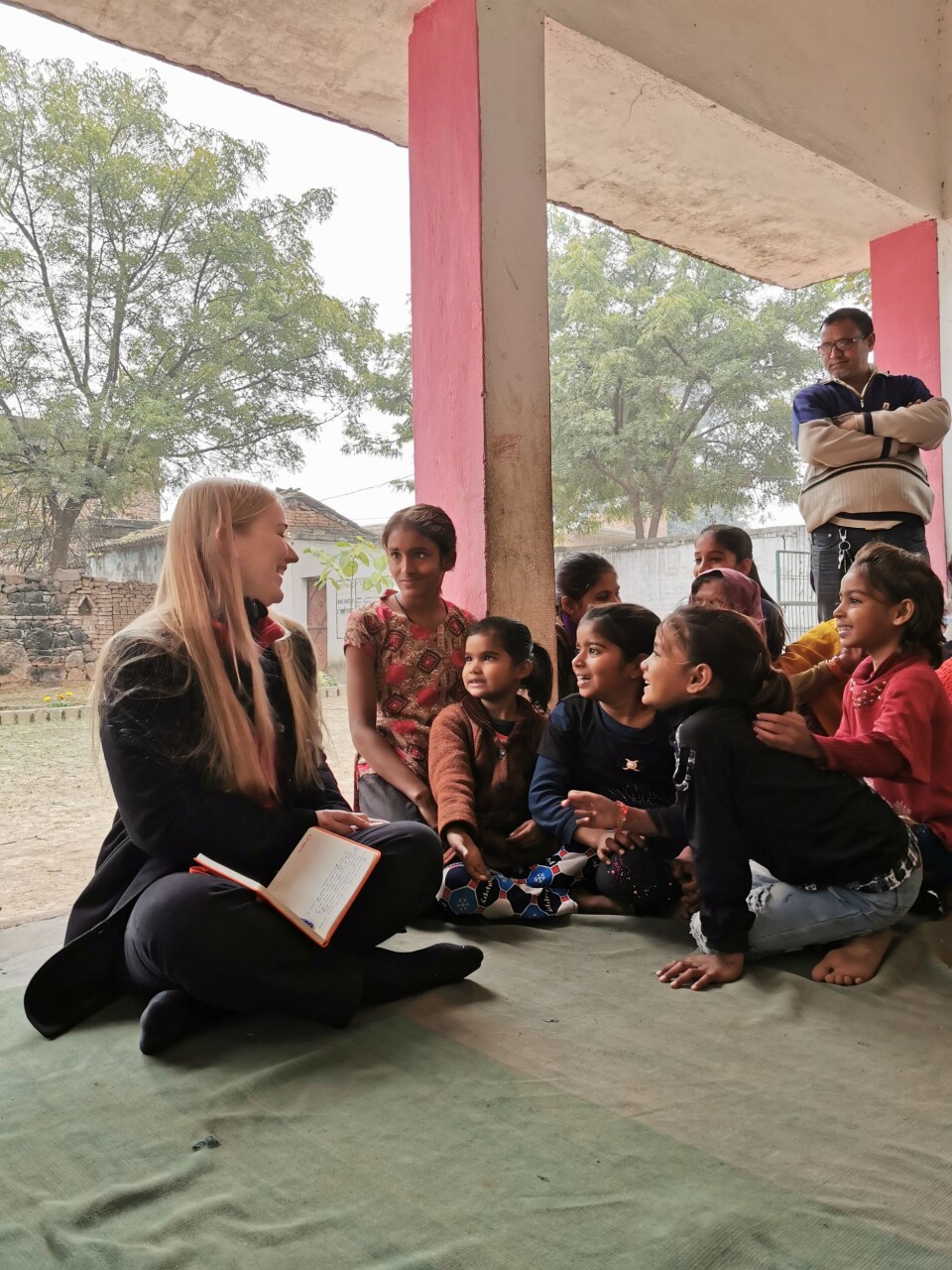
EIT in India
This year an EIT village ventured past Scandinavia to help developing economies in rural India. There they experienced both challenges and companionship.
The EIT (Experts In Teamwork) village «Become a change agent» is a new 3 week intensive course where you spend a week in India. There you will cooperate with local entrepreneurs to help solve challenges revolving around poverty, education and sustainability.

As a student you will be in one of five teams, and your team will pick one out of fifteen different challenges ranging between making business models for e-rickshaws and promoting eco-friendly tourism.
The village itself is an experiment, says village supervisor Vivek Sinha:
– There is no lecture on what entrepreneurial thinking is in this village, and the assumption is that entrepreneurial thinking comes from facing challenges and uncertainties. That is the experimental part of the Village.
This semester the students worked in a radius of 25 km around the rural villages of Jhansi and Orccha. Here they got to cooperate with Technology and Action for Rural Advancement (Tara) to find contextualized solutions to real problems.
The village is also associated with Engage - Centre for Engaged Education through Entrepreneurship at NTNU (SFU) and funded by a project called Network for Engaged Entrepreneurship in Developing Economies (Need). This means that students do not need to pay for their flight to India. The village is only funded by NEED for one more semester. It will, however, continue to run even after the NEED project runs out, but it might do so in a different context than India and with a different format.
Read: Sami from Chile shares her thoughts about her home country's revolution.
Female empowerment
Daniel Appelhans, who is a student in the EIT village, speaks of the team experience and describes it as being quite intense.
– You’re with your EIT team all the time, and though I really enjoyed the social aspect of it, you can’t really escape, Appelhans jokingly adds.
He was also one of the students tasked with making a business model for e-rickshaws, and first he had to learn about the cultural and social background that made the rickshaws needed in the first place.
– In my opinion the e-rickshaws are a matter of female empowerment. You see, in rural India many girls choose not to pursue higher education. One of the key reasons for this is being unable to commute safely and conveniently between the village and the city.
Sinha adds that young women often face harassment from men, and therefore Tara wants the e-rickshaw business to be driven and administered by women.

– You could have the perfect business model for e-rickshaws, but it wouldn’t work without the women having the confidence to act, says Appelhans
Tara is taking steps to help improve the situation with self-help groups. These are groups of up to 10 women who will receive help from Tara, and be educated in hopes of raising their confidence.
The returnee
Manish Kumar Dawadi is a student in the EIT village who was tasked with eco-tourism.
– I took my bachelor in India, so back then everything seemed normal to me. I guess it was a bit like living inside a painting.
When he returned to India this time, his perspective was changed.
– You’re not able to understand what kind of environment you live in unless you take a step out of it and look around.
Dawadi explains that he got a more in depth understanding of how the social and cultural context in India has hindered development, and further elaborates on how to make eco-tourism a reality, and its benefits.
– By having homestays, the local villagers can get enough money to feed their family for a day, and that’s just with 40 kr. The tourists can be shown around by local guides, and they get to experience what each village has to offer.
– One village could have a lush forest with natural beauty, while another would have spices, handicrafts made from recycled matter or use cow dung to make electricity.
In addition to the economic benefits that come with the villagers selling their own crafts in their own villages, foreigners also work as a cultural influence.
Furthermore, the norm in the villages is that the man provides income and the woman manages the house. This makes less educated women who are conformed by cultural norms less likely to travel out in the world or become independent. Dawadi explains that by introducing a different attitude towards women, this can in turn change the villagers’ own perception regarding women’s place in society.

































